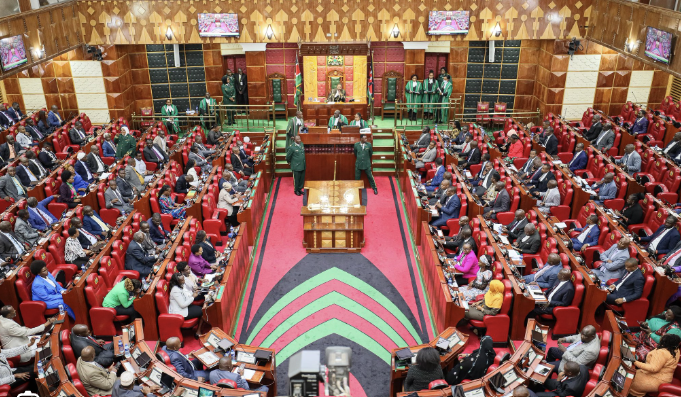Parliament is set to deliberate on the vetting reports of 14 Principal Secretary (PS) nominees following the conclusion of the vetting exercise by various House departmental committees on Monday. The nominees were put forward by President William Ruto on March 20 as part of a reshuffle that saw some current PSs reassigned to diplomatic positions.
Among the notable nominees is former Nyeri Deputy Governor Caroline Karugu, nominated to the State Department for East African Community Affairs under the Ministry of EAC and ASALs and Regional Development. Also on the list is former ODM-nominated Senator Judith Pareno, who is set to head the State Department for Justice, Human Rights, and Constitutional Affairs within the Office of the Attorney General. Dr. Ouma Oluga, former secretary-general of the Kenya Medical Practitioners, Pharmacists and Dentists Union (KMPDU), has been nominated to the State Department for Medical Services under the Ministry of Health.
Meanwhile, interviews for the Independent Electoral and Boundaries Commission (IEBC) member positions continue into their third week. The IEBC Selection Panel, chaired by Nelson Makanda, is assessing the suitability of 105 shortlisted candidates. Notably, KPLC Board Chairperson Joy Brenda Masinde and Erastus Ethekon, both previously interviewed for the chairperson position, are among those being considered. Parliament last week extended the panel’s term by 14 days, effective April 28, 2025, to allow for the completion of the process.
In another key governance initiative, the Technical Working Group on Gender-Based Violence (GBV) and femicide is collecting public views today at the Kenyatta International Convention Centre (KICC). Formed by President Ruto on January 10, 2025, the group is tasked with reviewing Kenya’s response to GBV and recommending policy, legal, and institutional reforms.
The countrywide public participation exercise, launched in Nairobi on April 3, has reportedly received overwhelming responses. According to the group’s chair, Nancy Baraza, the feedback will help shape national strategies to combat GBV and femicide, marking a significant step in addressing gender-based injustices across the country.

